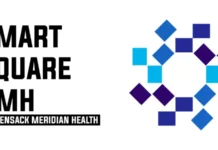Healthcare costs have been on the rise globally, and unexpected medical expenses can easily lead to financial distress. While some argue that health insurance is an unnecessary expense, others see it as an essential safety net that provides peace of mind. The reality is that life is unpredictable, and even the healthiest individuals can be caught off guard by unforeseen medical emergencies or chronic illnesses.
Health insurance is a topic that often sparks debates and discussions, leaving many wondering whether it is truly necessary. As we navigate the complexities of the healthcare system, questions about the need for health insurance can arise. Should you invest in a health insurance plan, or can you manage without one?
In this article, we will delve into the intricacies of health insurance, explore its benefits and drawbacks, and ultimately help you make an informed decision about whether or not you need it.
Understanding Health Insurance
Health insurance is a system that provides financial coverage and access to medical services to individuals or groups. It works by spreading the risk of healthcare expenses among a large pool of insured individuals, ensuring that the cost of medical care is more manageable for everyone involved.
The primary purpose of health insurance is to protect individuals from the high costs of medical treatments and services. It helps to cover a variety of healthcare expenses, including doctor visits, hospital stays, surgeries, prescription medications, and preventive care. The specific coverage and benefits provided by health insurance plans can vary depending on the type of insurance and the policy chosen.
Health insurance operates on the principle of risk pooling, where individuals pay regular premiums to the insurance provider. These premiums, along with contributions from other policyholders, create a fund that can be used to cover the costs of medical care for those insured. When an individual requires medical treatment, the insurance company pays a portion of the expenses, reducing the financial burden on the individual.
It’s crucial to understand the terms and conditions of a health insurance policy before enrolling. This includes reviewing the coverage limits, exclusions, and any restrictions on pre-existing conditions or specific treatments. It’s also important to consider factors such as the reputation and customer service of the insurance provider, as well as the overall affordability of the plan.
Types of health insurance plans
When exploring health insurance plans, it’s important to understand the different types of plans available and the key elements that make up these plans. Let’s take a closer look at the various types of health insurance plans and the essential elements associated with them:
-
Health Maintenance Organisation (HMO)
-
-
- HMO plans generally require individuals to choose a primary care physician (PCP) who coordinates their healthcare.
- Referrals from the PCP are often necessary to see specialists.
- Out-of-network care is typically not covered, except in emergencies.
- HMOs usually have lower premiums and may have lower deductibles, but they offer more restricted provider networks.
-
-
Preferred Provider Organisation (PPO)
-
-
- PPO plans offer more flexibility in choosing healthcare providers.
- Individuals can typically see any healthcare professional without needing a referral.
- In-network care is more cost-effective, but out-of-network care is still covered, although at a higher cost.
- PPOs generally have higher premiums and deductibles compared to HMOs.
-
-
Exclusive Provider Organisation (EPO)
-
-
- EPO plans to combine elements of both HMOs and PPOs.
- They have a defined network of healthcare providers, but individuals don’t usually need a referral to see a specialist.
- Out-of-network care is typically not covered, except in emergencies.
- EPOs may have lower premiums than PPOs but still offer some flexibility in choosing providers.
-
-
Point of Service (POS)
-
- POS plans are a hybrid of HMOs and PPOs.
- Like an HMO, individuals choose a PCP and require referrals to see specialists.
- However, individuals have the option to seek out-of-network care, usually at a higher cost.
- POS plans often have lower premiums than PPOs but may still have higher deductibles.
Elements of health insurance
Now, let’s explore the key elements that are integral to health insurance plans:
-
Premiums
-
-
- Premiums are the regular payments made to the insurance company to maintain health insurance coverage.
- They can be paid monthly, annually, or on another schedule determined by the insurance provider.
- Premium amounts vary based on factors such as age, location, coverage level, and the insurance company’s pricing structure.
-
-
Deductibles
-
-
- A deductible is the amount an insured individual must pay out of pocket for covered services before the insurance company begins contributing.
- For example, if you have a $1,000 deductible, you would need to pay $1,000 of eligible medical expenses before insurance coverage starts.
-
-
Copayments
-
-
- Copayments (or copays) are fixed amounts an insured person pays at the time of receiving a particular healthcare service.
- For instance, you might have a $30 copayment for a doctor’s visit or a $15 copayment for prescription medications.
-
-
Networks
-
- Networks consist of healthcare providers (doctors, hospitals, clinics) that have contracted with an insurance company to provide services to its members.
- In-network providers have negotiated rates with the insurance company, resulting in lower out-of-pocket costs for the insured individual.
- Out-of-network providers do not have contracts with the insurance company, which may lead to higher costs or reduced coverage.
These elements vary across different health insurance plans, so it’s crucial to carefully review and compare them when choosing a plan. Consider your healthcare needs, budget, and preferences to determine which plan type and element combination best suits your requirements.
The Importance of Health Insurance
Health insurance plays a vital role in providing individuals and families with several important benefits. Let’s explore some of the key reasons why health insurance is crucial:
Financial Protection
One of the primary reasons to have health insurance is to protect yourself from exorbitant medical expenses. Healthcare costs can be significant, especially in cases of emergencies, surgeries, or prolonged treatments. Without insurance, these expenses can quickly drain your savings or leave you in a precarious financial situation. Health insurance helps mitigate the financial burden by covering a portion of your medical expenses, including hospital stays, doctor visits, prescription medications, and preventive care. It provides a safety net that helps you manage unforeseen healthcare costs and protects your financial well-being.
Access to Quality Healthcare
Health insurance not only provides financial protection but also grants you access to a network of healthcare providers. Insurance companies negotiate contracts with healthcare professionals and facilities, ensuring that their policyholders have a wide range of choices when it comes to seeking medical care. With insurance, you can visit primary care physicians, specialists, hospitals, and clinics within your network, enhancing your ability to receive timely and quality healthcare. Having access to a diverse pool of healthcare providers is especially crucial when seeking specialised treatments or consultations.
Peace of Mind and Reduced Stress
Knowing that you have health insurance can bring peace of mind and alleviate the stress associated with unexpected health issues. Life is unpredictable, and medical emergencies or chronic illnesses can arise when least expected. Having insurance coverage means you can focus on your health and well-being without constantly worrying about the financial consequences of medical treatments. It provides a sense of security and allows you to seek necessary care promptly, reducing stress and facilitating a better overall healthcare experience.
Preventive Care and Wellness
Health insurance plans often include coverage for preventive services, such as vaccinations, screenings, and wellness visits. These preventive measures are essential for maintaining good health and catching potential health issues early on. With insurance, you can access routine check-ups, immunisations, and screenings that help prevent or detect illnesses at an early stage when treatment is typically more effective. By focusing on preventive care, health insurance promotes a proactive approach to wellness and assists in maintaining optimal health.
The Benefits of Health Insurance
Health insurance provides a range of benefits that contribute to the overall well-being and healthcare accessibility of individuals and families. Let’s explore some specific advantages of having health insurance:
Medical Expenses Coverage
Health insurance helps mitigate the financial burden of medical expenses. It covers a significant portion of the costs associated with healthcare services, including hospital stays, surgeries, diagnostic tests, prescription medications, and specialist consultations. By sharing financial responsibility, health insurance ensures that individuals can access necessary medical treatments without incurring overwhelming out-of-pocket expenses. This coverage is particularly valuable for costly procedures, long-term treatments, and chronic conditions where medical expenses can quickly accumulate.
Preventive Care Services
Many health insurance plans include coverage for preventive care services. These services focus on maintaining good health, preventing diseases, and detecting potential health issues at an early stage. Preventive care may include vaccinations, screenings, wellness exams, and counselling for lifestyle changes. By covering these services, health insurance promotes a proactive approach to healthcare, emphasising the importance of prevention and early intervention. Regular check-ups and screenings can lead to early detection and treatment of conditions, potentially avoiding more severe health complications in the future.
Emergency Medical Services
Medical emergencies can happen unexpectedly, and the cost of emergency care can be staggering. Health insurance provides vital coverage for emergency medical services, including ambulance transportation, emergency room visits, surgeries, and intensive care. With insurance, individuals can seek immediate medical attention without worrying about the financial implications. This ensures that timely and potentially life-saving treatments are accessible during critical situations.
Access to a Network of Healthcare Providers
Health insurance plans often have networks of healthcare providers, including doctors, specialists, hospitals, and clinics. By being part of these networks, individuals have access to a broad range of healthcare professionals who have established contracts with the insurance company. This network ensures that individuals can choose from a pool of trusted and qualified providers, increasing the likelihood of receiving quality healthcare services. Additionally, in-network care is typically more cost-effective, as insurance companies negotiate discounted rates with these providers, reducing out-of-pocket expenses.
Mental Health and Substance Abuse Services
Many health insurance plans now include coverage for mental health services and substance abuse treatment. This recognition of the importance of mental well-being ensures that individuals can access necessary counselling, therapy sessions, and treatments for mental health conditions. By providing coverage for these services, health insurance supports holistic healthcare and acknowledges the interconnectedness of physical and mental health.
Considerations in Choosing Health Insurance
When selecting health insurance, several important considerations can help you make an informed decision that aligns with your needs and preferences. Let’s explore some key factors to keep in mind:
Personal Health Needs and Medical History
Consider your individual health needs and medical history. Are you generally healthy and only require basic healthcare services, or do you have specific ongoing medical conditions that require frequent visits to specialists or regular medication? Understanding your health needs will help you determine the level of coverage and types of services you require from a health insurance plan. For example, if you have a pre-existing condition, ensure that the plan you choose provides adequate coverage for that specific condition.
Affordability and Budgeting
Evaluate your financial situation and determine a budget for health insurance. Consider not only the monthly premiums but also the deductible, copayments, and coinsurance amounts. It’s essential to strike a balance between affordable premiums and out-of-pocket costs. Analyse your income, expenses, and savings to determine what you can comfortably afford in terms of insurance premiums and potential healthcare expenses. Remember that while lower premiums may be enticing, they often come with higher deductibles and copayments.
Provider Networks and Access to Preferred Healthcare Professionals
Review the provider networks associated with different health insurance plans. Ensure that the plan you choose includes healthcare professionals, hospitals, and clinics that you prefer or have a relationship with. If you have specific doctors or specialists you prefer to see, verify that they are part of the plan’s network. Consider the convenience of location and accessibility of healthcare providers within the network, especially if you have a preference for certain hospitals or specialists.
Coverage and Benefits Comparison
Compare the coverage and benefits offered by different health insurance plans. Examine the details of what is covered, including hospitalisation, outpatient care, prescription medications, mental health services, and preventive care. Evaluate the limits, exclusions, and waiting periods for certain treatments or procedures. Determine whether the plan offers coverage for essential services that align with your healthcare needs. Pay attention to specific benefits such as maternity coverage, dental and vision care, and alternative therapies if those are important to you.
Prescription Medication Coverage
If you take prescription medications regularly, ensure that the health insurance plan you choose provides adequate coverage for the medications you need. Review the plan’s formulary, which is the list of drugs covered by the insurance. Consider the copayment or coinsurance associated with prescription medications and any limitations or requirements for coverage, such as prior authorisation or step therapy protocols.
Alternatives to Traditional Health Insurance
While traditional health insurance is the most common option, there are alternative approaches to obtaining healthcare coverage. Here are a few alternatives worth considering:
Private Health Insurance
Private health insurance provides additional coverage beyond what is offered by the public Medicare system. It offers benefits such as shorter waiting times for elective surgeries, access to private hospitals, and coverage for services not covered by Medicare, such as dental, optical, and physiotherapy. Private health insurance plans in Australia come in various levels of coverage, allowing individuals to choose the options that best suit their needs and budget.
Extras or Ancillary Cover
Extras cover, also known as ancillary cover, is a type of private health insurance that focuses on non-hospital services, such as dental, optical, chiropractic, and physiotherapy. It helps cover the costs of these services, which are typically not covered by Medicare. Extras cover can be purchased as a standalone policy or added as a component to a private health insurance plan.
Medicare Levy Surcharge (MLS) Exemption
The Medicare Levy Surcharge is an additional tax imposed on high-income earners who do not have private hospital coverage. To avoid paying the surcharge, individuals can take out an appropriate level of private hospital insurance. By having private hospital cover, you may be exempt from paying the MLS if your income exceeds the specified threshold.
Overseas Visitors Health Cover (OVHC)
OVHC is health insurance designed for temporary residents, such as international students, working holidaymakers, or those on temporary work visas. It provides coverage for medical treatments and hospital care during their stay in Australia. OVHC is a requirement for certain visas and can be obtained from various insurance providers.
Government Initiatives
The Australian government provides specific initiatives to support individuals who need assistance with healthcare costs. These initiatives include the Pharmaceutical Benefits Scheme (PBS), which subsidises the cost of prescribed medications, and the Medicare Safety Net, which provides additional financial assistance for individuals and families who reach a certain threshold of out-of-pocket medical expenses in a calendar year.
Conclusion
In conclusion, health insurance plays a crucial role in providing financial protection, access to quality healthcare, and peace of mind. It offers coverage for medical expenses, including hospital stays, surgeries, and prescription medications, reducing the financial burden on individuals and families. Health insurance also promotes preventive care, ensuring regular check-ups and screenings to detect and address health issues early on.
By assessing personal health needs, considering affordability and budgeting, reviewing provider networks, comparing coverage and benefits, and evaluating prescription medication coverage, individuals can make informed decisions when choosing a health insurance plan. It is essential to understand that everyone’s circumstances are unique, and what works for one person may not be suitable for another. Therefore, taking the time to evaluate personal needs and circumstances is crucial to finding adequate health insurance coverage.
Read Also: A Brief Yet Fascinating History of Acupuncture



































































